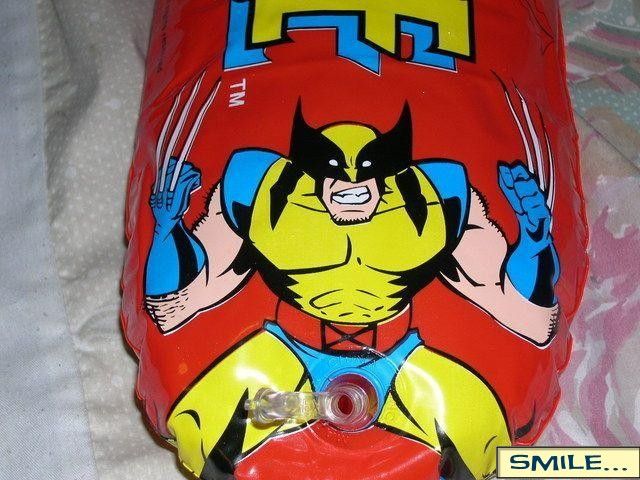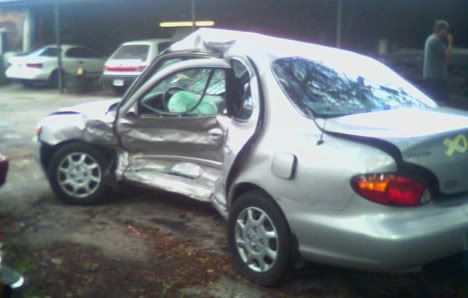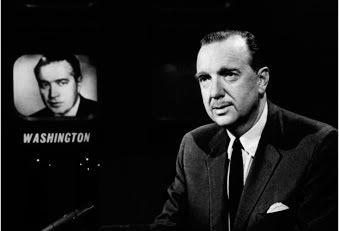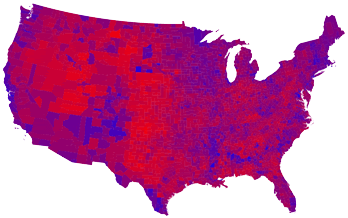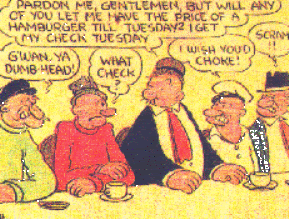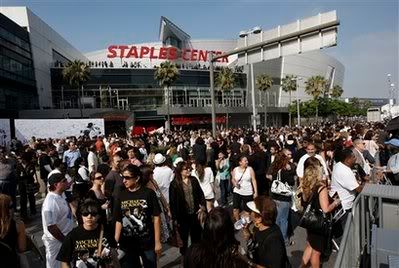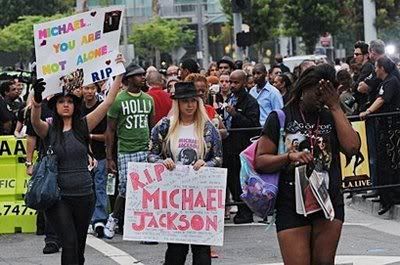I've been in the doldrums all week and can't seem to snap out of it. The heat might be getting to me. We've already had 15 days of temperatures at 100° or over, and 8 of those days were 105° or more. Today is likely to be the 9th day of such extreme heat. Incidentally, that is my threshold for meeting the definition "hot as fuck." Between 99.5° and 104.4° is just "damned hot." Unless there is an afternoon cloud providing some shade, I am now limiting my walking regimen to mornings until this heat subsides. But I digress.
I am also being weighed down by some very unpleasant political realities which, unlike the heat, will not fade away by mid-September. It's giving me a restless anxiety.
The fact that I built up a set of completely unrealistic expectations for change in the Obama administration is chewing the hell out of my raw nerves. And now that Barack Obama's
approval rating is dropping, speculation is being fueled as to whether he will be a one-term president, and whether the Democrats will start losing seats in the 2010 mid-terms if the economy hasn't improved substantially by this time next year. In the meantime, everyone is scrambling to figure out what to do.
The looming political battle is about how to respond, and three camps are forming. The first includes the White House and most Democratic leaders in Congress, who champion a wait-and-see approach until more of the stimulus money hits the streets.
White House officials estimate that the government has committed $158 billion for spending around the country, but only about one-third of that has been spent. Temporary tax cuts have totaled about $43 billion thus far, according to White House estimates.
A second camp, consisting of nervous Democrats and some economists, argues that the government must spur the economy with another round of spending, tax cuts or a mixture of both.
The third camp is led by Republicans, many of whom argue that the spending program was wrong from the start and that the government should focus on tax cuts.
Ahh, yes, the same old tired song and dance routine. Maybe we need a fourth camp.
I keep asking myself, "why are our choices limited to center-right Democrats or far-right Republicans?" The progressive left really isn't getting much of a shot at fixing the problems if we keep becoming disillusioned with a lack of progress among the current crop and then swing wildly back to the right in 2010 and/or 2012.
Then I realize that is the only scenario because this country will probably require another century or two for us to get our shit together. Because the substantive change I am seeking is not going to be brought about by Congressional coddling, reaching across the aisle, and compromising on critically important matters.
To use a beer analogy, when I voted for change, it was not to replace Bud Light with Miller Lite, or even Heineken. I want to be knocked off my feet by a rich, dark, smoky unpasteurized brew on tap, with a thick frothy head, served in a pint glass instead of an aluminum can.
Unfortunately, that's not the American way. And this reluctance to not only embrace change, but failing to aggressively pursue it, could well be our downfall.
The level of corruption in politics is astounding, and our political system itself seems to be choking our hope, or mine at least. Here is
one example which brilliantly illustrates the gross inefficiency of our federal and state governments.
According to an analysis by The New York Times of 5,274 transportation projects approved so far — the most complete look yet at how states plan to spend their stimulus money — the 100 largest metropolitan areas are getting less than half the money from the biggest pot of transportation stimulus money. In many cases, they have lost a tug of war with state lawmakers that urban advocates say could hurt the nation’s economic engines.
The stimulus law provided $26.6 billion for highways, bridges and other transportation projects, but left the decision on how to spend most of it to the states, which have a long history of giving short shrift to major metropolitan areas when it comes to dividing federal transportation money. Now that all 50 states have beat a June 30 deadline by winning approval for projects that will use more than half of that transportation money, worth $16.4 billion, it is clear that the stimulus program will continue that pattern of spending disproportionately on rural areas.
“If we’re trying to recover the nation’s economy, we should be focusing where the economy is, which is in these large areas,” said Robert Puentes, a senior fellow at the Brookings Institution’s Metropolitan Policy Program, which advocates more targeted spending. “But states take this peanut-butter approach, taking the dollars and spreading them around very thinly, rather than taking the dollars and concentrating them where the most complex transportation problems are.”
[...]
Seattle found itself shut out when lawmakers in the State of Washington divided the first pot of stimulus money. Missouri has directed nearly half its money to 89 small counties which, together, make up only a quarter of the state’s population. The United States Conference of Mayors, which did its own analysis of different data last month, concluded that the nation’s metropolitan areas were being “shortchanged.”
Basically, the stimulus money, or the transportation segment of it at least, is simply being squandered with no rhyme,
reason or logic.
Oh, there's a reason all right (emphasis mine):
“We have a long history of shortchanging cities and metropolitan areas and allocating transportation money to places where few people live,” said Owen D. Gutfreund, an assistant professor of urban planning at the City University of New York who wrote “20th Century Sprawl: Highways and the Reshaping of the American Landscape” (Oxford University Press, 2004).
Professor Gutfreund said that in some states the distribution was driven by statehouse politics, with money spread to the districts of as many lawmakers as possible, or given out as political favors. In others, he said, the money is distributed by formulas that favor rural areas or that give priority to state-owned roads, often found far outside of urban areas.
Here we are facing the most dire economic situation since the Great Depression and it's still all about selfish personal greed in political circles. Have no fear, this is all part of the Obama administration's master plan:
Obama administration officials, who have called for ending sprawl and making sure that federal transportation spending is cost-effective, say they are looking at how states are spending the money from the stimulus law, officially called the American Recovery and Reinvestment Act, to learn about the strengths and weaknesses of the current system.
“The transparency that comes with Recovery Act funds is letting us see what’s happening in real time, and that’s a good thing,” said Roy Kienitz, an under secretary of transportation for policy. “Understanding where recovery dollars go and why will help us determine how to shape long-term transportation policies with the goal of getting the most benefit for every dollar.”
Bull-fucking-shit! Come on! This behavior is nothing new; this has been going on in some form or another through the centuries.
It is clear that states and politicians
cannot be trusted to spend the stimulus money wisely, and as it was intended. Hooray for transparency so we can all be annoyed. Well, except for the millions of Americans who aren't paying attention. I know, I know, I'm being too harsh. Let them get through their
Michael Jackson grief and then I'm sure they'll come around.
Aside from the economy and the recovery efforts, there's tremendous pressure to overhaul health care which, if the transportation stimulus spending provides any clues, we are likely to get
screwed in the ass on that front as well. There isn't a perfect health care scenario, but you can bet we could do a
whole lot better than what we'll end up with once Obama and Congress are done compromising and kissing ass with
Big Pharma.
The nation's largest insurers, hospitals and medical groups have hired more than 350 former government staff members and retired members of Congress in hopes of influencing their old bosses and colleagues, according to an analysis of lobbying disclosures and other records.
[...]
The hirings are part of a record-breaking influence campaign by the health-care industry, which is spending more than $1.4 million a day on lobbying in the current fight, according to disclosure records. And even in a city where lobbying is a part of life, the scale of the effort has drawn attention. For example, the Pharmaceutical Research and Manufacturers of America (PhRMA) doubled its spending to nearly $7 million in the first quarter of 2009, followed by Pfizer, with more than $6 million.
The push has reunited many who worked together in government on health-care reform, but are now employed as advocates for pharmaceutical and insurance companies.
It is ironic that the entire health care reform movement is one giant spreading cancer. But that's politics and the American way again. Expect real substantive change and progress and ye shall be disappointed.
Outside the unpleasant realm of health care and the economy, things aren't any better on the civil rights front. We continue having to fight like hell over no-brainer issues like
DADT (although
hope is brewing), which makes a repeal of DOMA and full nationwide marriage equality seem hopelessly distant. At least one state has the cajones to
go to battle for justice.
Even this initial breath of fresh air is already stagnated a few miles up the coast.
Barely
two months after Maine became the fifth state to allow gay marriage,
55,087 assholes have now signed a petition to put that up for a public vote. Thank the Catholic Diocese of Portland and others for that effort. And people wonder why I have such issues with organized religion.
We'll now have that homophobic gem in our faces, along with a big infusion of cash from out-of-state interests to push infuriatingly obnoxious bullshit advertising for weeks leading up to the election day showdown.
Whoever first uttered the words "life is just not fair" deserves a gold brick award for overachieving in understatements.
For the record, in a battle between red and blue, this is not how a progressive country should look.
But once the summer heat subsides, I'm sure I'll calm down and realize just how irrational I'm feeling at the moment.



















